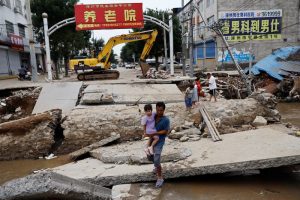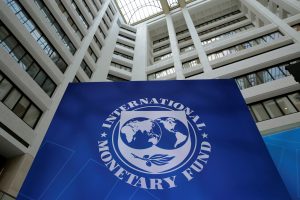Authorities in China have relaxed rules for bank loans for commercial property in a bid to ease the liquidity crisis has thrown the sector into a three-year downturn.
The move caused property shares to rise on Thursday, but analysts said banks have been so reluctant to lend to private developers they doubted that the measures would help embattled firms.
While property developers welcomed the measures, many were sceptical about the immediate impact, because banks have failed to act on repeated calls by regulators to issue such loans.
ALSO SEE: ASML Sees Hit From US Chip Curbs But Could Enjoy 2025 Boom
Analysts said the policies do not go far enough to change the fundamental problem of weak confidence and fragile demand of homebuyers, which has undermined home sales – property firms’ major source of income.
“While this could help to ease liquidity risk of indebted developers, property demand will need to be stronger for home prices and sales, and thus the sector, to recover,” UBS analyst John Lam said in a note.
This week’s new measures included allowing developers to use the loans to repay existing loans and bonds, while raising the amount they can borrow to 70% of the appraised asset value from 50% earlier.
China’s CSI 300 Real Estate Index closed up 5.9%, while Hong Kong’s Hang Seng Mainland Properties Index firmed 4.4%.
Guangzhou R&F Properties surged 17% while Sino-Ocean Group and Seazen Group both rose more than 12%.
Two of the largest private developers, Country Garden and Longfor Group, gained 5.9% and 8.1%, respectively.
‘Most quality assets pledged for debt’
Despite the gains, developers and analysts say the troubled companies may have already pledged most of their quality commercial assets for other debt.
“We have contacted some banks this morning. They didn’t give a positive response,” said an executive at a developer that has defaulted on its debt, speaking on condition of anonymity as he was not authorised to talk to the media.
“Unless the central government forces the banks to lend, they wouldn’t want to take the risk.”
Banks have been very strict in not lending to commercial properties that are in bad locations or have poor operations since the debt crisis, the executive added.
China’s liquidity crisis has led many developers to default on, or delay, debt payments, as they struggle to sell apartments and raise funds.
Despite Beijing’s recent support measures, such as easier access to cash for developers, cuts in home mortgage rates and relaxed rules on buying homes, the market has shown little sign of stabilising, with sales staying weak and yet more defaults.
Valuations have also slumped in the last few years, making it impossible to increase the lending from existing loans, even though developers may now borrow up to 70% of the property value, the executive at the developer added.
Large number of unfinished homes in low-tier cities
UBS’s Lam expected the credit support policy to be positive for private developers with high commercial property assets exposure, such as Longfor and Seazen.
Nomura said the biggest hurdle for a real property recovery was the large scale of pre-sold but unfinished homes in low-tier cities. The bank estimated completing construction of such homes nationwide would require 3.2 trillion yuan.
“Given the sheer funding gap faced by developers to secure the successful delivery of pre-sold homes, we doubt whether banks are the correct choice for addressing this issue,” it said in a research note.
It added that it believed Beijing would eventually need to reach into its own pockets to fill the gap, using printed money from the central bank.
- Reuters with additional editing by Jim Pollard
ALSO SEE:
China’s Property Struggles Deepen as New Home Prices Dive
Country Garden Warns of ‘Severe’ Tests in China Property Market
Nasdaq-Listed China Shadow Bank Down 60% on Property Crisis Hit
Evergrande Sells Key Shanghai Stake as China Property Weakens
China Not Doing Enough to Spark Property Turnaround: Analysts
























